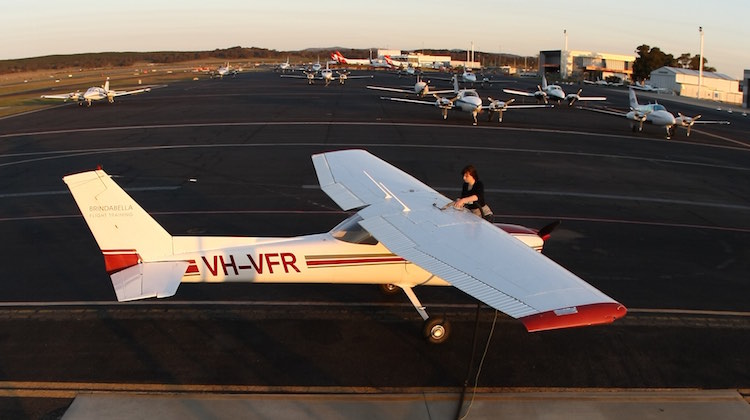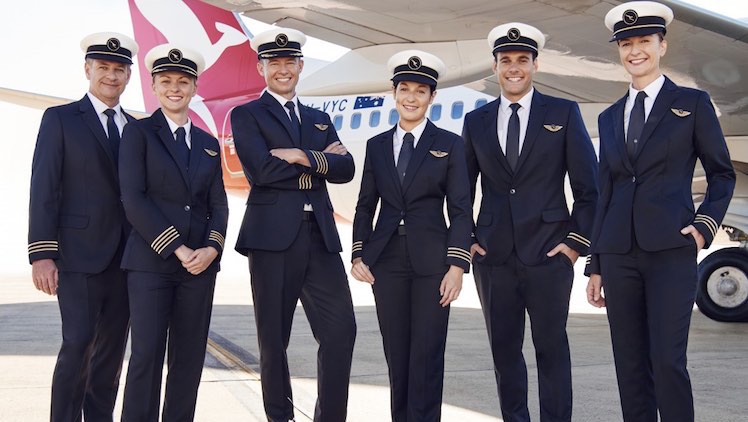
Urgent action is needed if Australia’s aviation industry is to avoid disruptions due to the shortage of pilots and skilled maintenance engineers, a report says.
That is the conclusion of an expert industry panel’s review of the aviation training sector in this country.
“Australia is experiencing a severe shortage of aviation personnel and the situation is growing worse,” the report published on July 27 stated.
“The current shortage of qualified pilots and aircraft maintenance engineers is a global problem and a major issue for Australia’s aviation system. Urgent action is required if the country is to avoid major disruptions.
“This is not a future threat, it is a significant present challenge that is currently disrupting the industry, and actions to address it need to include immediate mitigations supported by a longer-term sustainable strategy which involves many stakeholders.”
The report’s publication comes as Boeing’s recently published 2018-2037 Pilot and Technician Outlook estimated the commercial airline industry will require 635,000 new pilots, 622,000 maintenance technicians and 858,000 cabin crew members over the next 20 years in response to a doubling of the fleet and record demand for air travel.
Asia Pacific represented the largest source of demand with 31 per cent of all new pilots, 34.1 per cent of all technicians and 36.1 per cent of all cabin crew to be recruited in the region between now and 2037.
The strong demand in the Asia Pacific was, in part, being met by qualified pilots from outside the region, attracted by the relatively higher wages and conditions on offer.
Also, Asia Pacific airlines were sending pilots to overseas aviation schools in Australia, Europe, the United States and elsewhere to gain their qualifications while establishing locally-based flight schools as part of efforts to boost aviation training capacity to meet the expected demand.

Australia potentially well placed but lacks of strong policy direction
The report said Australia, as an advanced aviation nation, was “potentially well-placed to be a major player” in the training of the next generation of aviation professionals.
However, Australia might miss out on this opportunity because of “issues within the aviation training and regulatory systems which need fixing”.
“Solutions are available to resolve the many issues which are involved however a collaborative and cohesive set of short and longer-term actions is required by both industry and government to ensure the domestic aviation industry continues to provide safe, reliable and sustainable air services to Australians, particularly regional Australians,” the report said.
“The task then is for Australia to fully grasp the substantial growth opportunity of providing larger scale training for aviation professionals from the burgeoning industry in the Asia Pacific and beyond.”
Further, the report said Australia did not have an aviation training system capable of meeting the requirements of the industry now, or in the years ahead.
“Our training system suffers from a lack of strong policy direction and coordination,” the report said.
“It needs to be overhauled to ensure that Australia is able to continue to provide the high standard of aviation safety and services that Australians expect, and for the country to take advantage of the growing demand for pilots and aircraft engineers in the Asia Pacific.”
Senior Australian pilots being hired by overseas operators
The report said Australia currently had an insufficient number of pilots with the necessary skills, experience and aptitude to fly and command aircraft operated by Australian airlines.
“The current pool of suitably qualified and experienced pilots is inadequate to meet the current levels of demand, with experienced Australian pilots being recruited by major international airlines to support the global expansion of air services,” the report said.
“Without action the gap between demand and supply is likely to grow, and grow quickly.”
And the situation could potentially get more severe, given the expansion plans of airlines in the region and beyond.
“As worldwide aviation activity continues to grow, particularly in the Asia-Pacific region, the concern is that internationally based airlines will increasingly look to Australia as a source of highly qualified and experienced airline pilots, flight instructors and licenced maintenance engineers which will further exacerbate the present shortages of aviation professionals in Australia,” the report said.
The situation had a flow-on effect on flying schools, with flying instructors “offered attractive salary packages to move or to return to airline flying, leading to a decline in the pool of experienced flying instructors available to undertake pilot training”.
Locally, Regional Express (Rex) recently publicly expressed its concerns over the impact of the global pilot shortage on its operations.
“Because of the critical pilot shortage, Rex is not able to have its usual contingent of stand-by pilots rostered for duty,” the airline said in what it described as an “open letter to all communities in the Rex network” on July 13.
“Consequently, any last-minute sick leave may result in flights being cancelled or combined with other routes.
“Rex apologises for all past and potential future disruption to services throughout the network as a result of the industry-wide global pilot shortage.”
Meanwhile, the report said there was a “serious shortage of licensed engineers available to oversee the maintenance of aircraft to the required regulatory standards”.
“The licenced engineer shortage is further exacerbated by the age profile of this group who are generally in their mid to late 50s.
“This situation is even more pronounced in the General Aviation sector than in larger airline operations.”
Also, Qantas was due to announce the location for its proposed pilot training academy by the end of September, with nine regional locations on the shortlist for the $20 million facility.
The school is scheduled to open its doors in 2019 and would initially train about 100 pilots a year for direct entry cadets joining the Qantas Group, including Jetstar and QantasLink.

Meanwhile, Virgin Australia’s 2019 pilot cadetship program, conducted by Flight Training Adelaide in South Australia, would feature two ab initio courses starting in January and July 2019, the airline said in May.
The airline was targeting an equal intake of males and females for its 54-week pilot cadetship program, as part of efforts to broaden the pool of available aviators for the next generation..

The aviation skills and training report was written by a panel of experts chaired by The Australian Aviation Associations Forum and comprising representatives from Aircraft Structural Contractors, Aviation Australia, Basair Aviation College, QantasLink, the Regional Aviation Association of Australia, the Regional Express Flight Training Academy and Virgin Australia.
The panel also consulted with more than 20 stakeholders in the aviation sector such as flight training schools, government departments, industry associations, regulators and universities.
It recommended an industry wide career pathway program from initial training through early flying experience to transitioning to the major airlines be established.
Other recommendations included calling for lobby group Airlines for Australia and New Zealand (A4ANZ) set up a forum of industry stakeholders, offering more financial support for students and flying schools and lifting the regulatory burden on the industry.
Deputy Prime Minister and Minister for Infrastructure and Transport Michael McCormack said he welcomed the report, adding the government supported efforts by industry to find longer-term and sustainable solutions for the ongoing expansion of the Australian aviation sector.
“I have written to the Minister for Education and Training, Simon Birmingham, to highlight the Report’s recommendations and to note its value as a snapshot of industry views regarding Australia’s future aviation workforce training needs,” McCormack said in a statement.
The full report can be read here.




